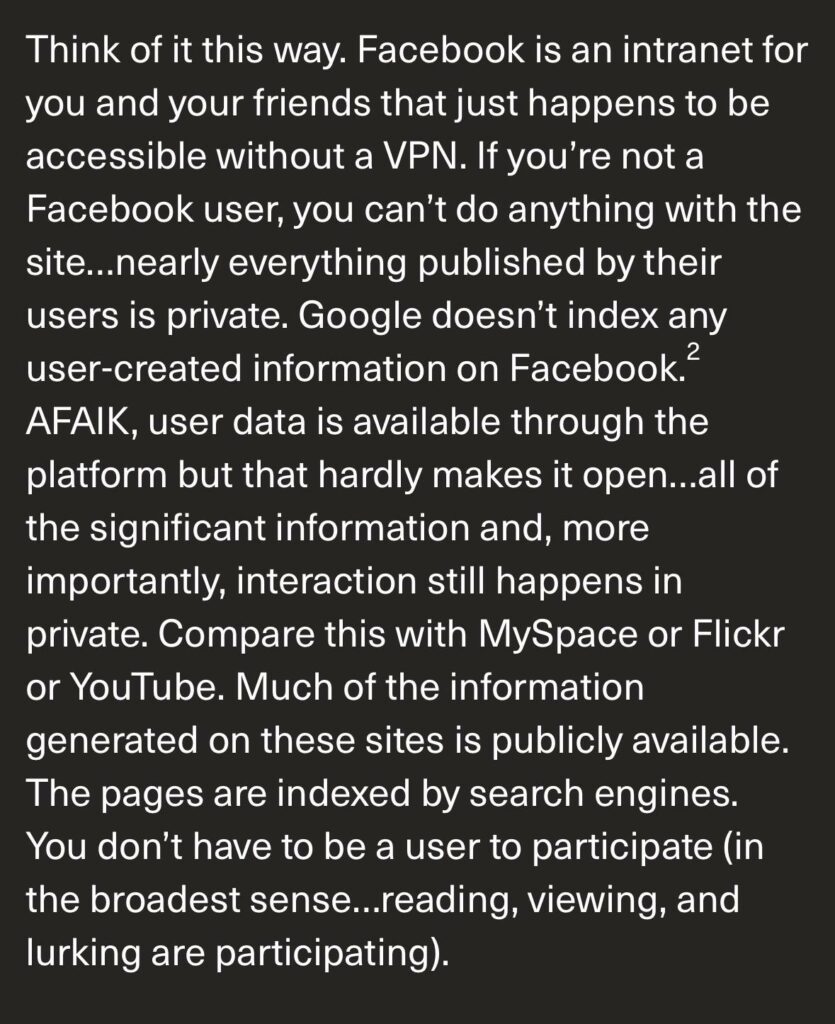“It’s fascinating to see how the #OpenWeb ideology was formed in the late aughts... Open Web evangelists criticizing early Facebook for being too private is an incredible heap of irony.”
— [Someone missing the point entirely]Let’s be clear: this is a historical and political mess, and one worth composting. The original #openweb vision, was wide, from the original European social vs the American libertarian, the person quoted is talking his view from inside the #blinded USA path rather than the original #WWW #mainstreaming of the more social European path.
The idea on both paths was never about exposing personal data, that’s a strawman born of today’s #dotcons-common-sense, where everything gets flattened into privacy = good, openness = bad. A deeply ahistorical take, infected by the post-Snowden wave of #encryptionism that conflates liberation with hiding, and assumes the only threat is surveillance by “them,” never enclosure by “us.”
The actual #4opens path—Open Data, Open Source, Open Standards, Open Process – is still a radical project rooted in trust, transparency, and collective power. It is about creating shared public spaces and protocols to collaborate, self-organize, and break the silos both big, built by emerging tech monopolies and small built by our #encryptionists dogmas. This original path draws from traditions of anarchist publishing, community radio, and autonomous tech. And yes, it explicitly distinguished between publishing and privacy.

Early Facebook wasn’t “too private.” It was already a walled garden – a corporate trap disguised as a community. The real critique from #openweb folks was that it centralized control, commodified interaction, and locked users in. That’s why people built alternatives like #Indymedia, #RSS networks, (sudo)federated blogging, and early #P2P social tools.
To say the openweb led to surveillance capitalism is like blaming bicycles for car crashes. What happened wasn’t openness going too far, it was openness being abandoned, subsumed, and bastardized by closed platforms under the guise of “convenience” and “safety.” And now, some are trying to rewrite that history to serve the logic of today’s bloated encryption silos and #NGO-funded moderation regimes. This is not just wrong, it’s dangerous. Because without remembering what native open tech looked like, we’ll keep mistaking the problem for the solution.
So yes, this quote, and the worldview it represents, is a mess. But we don’t throw it in the fire, we compost it, break it down, extract the nutrients, and grow something better from the rot. The #openweb was never about exposing people, it was about building shared power. Don’t confuse that with the platforms that sold us out, and don’t mistake critique for irony when it’s actually prophecy.


